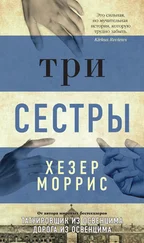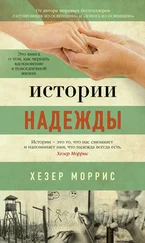The train stops again. It is pitch-black; clouds block out the moon and stars completely. Does the dark portend their future? Things are as they are . What I can see, feel, hear and smell right now . He sees only men like himself, young and on a journey into the unknown. He hears the grumbling of empty stomachs and the rasping of dry windpipes. He smells piss and shit and the odour of bodies too long unwashed. The men take advantage of not being thrown around to rest without the need to push and shove for a piece of turf. More than one head now rests on Lale.
Loud noises come from a few wagons back, gradually creeping closer. The men there have had enough, and are going to attempt an escape. The sounds of men throwing themselves against the wooden sides of the wagon, and the banging of what must be one of the shit buckets, rouses everyone. Before long every wagon erupts, attacked from within.
‘Help us or get out of the way,’ a large man screams at Lale as he throws himself against the side.
‘Don’t waste your energy,’ Lale replies. ‘If these walls were going to be breached, don’t you think a cow would have done it by now?’
Several men stop their efforts, turning angrily towards him.
They process his comment. The train lurches forward. Maybe those in charge have decided movement will stop the unrest. The wagons settle down. Lale closes his eyes.
•
Lale had returned to his parents’ home, in Krompachy, Slovakia, following the news that Jews in small towns were being rounded up and transported to work for the Germans. He knew Jews were no longer allowed to work and that their businesses had been confiscated. For nearly four weeks he helped around the house, fixing things with his father and brother, building new beds for his young nephews who had outgrown their cribs. His sister was the only family member earning an income, as a seamstress. She had to travel to and from work in secret, before dawn and after dark. Her boss was prepared to take the risk for her best employee.
One evening she returned home with a poster her boss had been asked to put in the shop window. It demanded that each Jewish family hand over a child aged eighteen or older to work for the German government. The whispers, the rumours about what had been happening in other towns, finally came to Krompachy. It seemed that the Slovakian government was acquiescing further to Hitler, giving him whatever he wanted. The poster warned in bold type that if any family had such a child and did not surrender them, the whole family would be taken to a concentration camp. Max, Lale’s older brother, immediately said he would go, but Lale would not hear of it. Max had a wife and two young children. He was needed at home.
Lale reported to the local government department in Krompachy, offering himself for transportation. The officials he dealt with had been his friends – they’d gone to school together and knew each other’s families. Lale was told to make his way to Prague, report to the appropriate authorities and await further instructions.
•
After two days the cattle train stops again. This time there is a great commotion outside. Dogs are barking, orders are yelled in German, bolts are released, wagon doors clang open.
‘Get down from the train, leave your possessions!’ shout the soldiers. ‘Rush, rush, hurry up! Leave your things on the ground!’ Being on the far side of the wagon, Lale is one of the last to leave. Approaching the door, he sees the body of the man killed in the skirmish. Briefly closing his eyes, he acknowledges the man’s death with a quick prayer. Then he leaves the wagon, but brings with him the stench – covering his clothes, his skin, every fibre of his being. Landing on bended knees, he puts his hands on the gravel and stays crouching for several moments. Gasping. Exhausted. Painfully thirsty. Slowly rising, he looks around at the hundreds of startled men who are trying to comprehend the scene in front of them. Dogs snap and bite at those who are slow to move. Many stumble, the muscles in their legs refusing to work after days without use. Suitcases, bundles of books, meagre possessions are snatched from those unwilling to surrender them or who simply don’t understand the orders. They are then hit by a rifle or fist. Lale studies the men in uniform. Black and threatening. The twin lightning bolts on the collar of their jackets tell Lale who he is dealing with. The SS. Under different circumstances he might appreciate the tailoring, the fineness of the cloth, the sharpness of the cut.
He places his suitcase on the ground. How will they know this one is mine? With a shiver, he realises that it’s unlikely he will see the case or its contents again. He touches his hand to his heart, to the money hidden in his jacket pocket. He looks to the heavens, breathes in the fresh, cool air, and reminds himself that at least he is outdoors.
A gunshot rings out and Lale jumps. Before him stands an SS officer, weapon pointed skywards. ‘Move!’ Lale glances back at the emptied train. Clothing blows away and books flap open. Several trucks arrive and small boys clamber out. They snatch up the abandoned belongings and throw them into the trucks. A heaviness settles between Lale’s shoulder blades. Sorry, Mumma, they have your books.
The men trudge towards the looming dirty pink brick buildings, with picture windows. Trees line the entrance, flush with new spring growth. As Lale walks through open iron gates he looks up at the German words wrought from the metal.
ARBEIT MACHT FREI
Work will make you free .
He doesn’t know where he is, or what work he is expected to do, but the idea that it will set him free has the feeling of a sick joke.
SS, rifles, dogs, his belongings taken – this he’d been unable to imagine.
‘Where are we?’
Lale turns to see Aron at his side.
‘The end of the line, I’d say.’
Aron’s face falls.
‘Just do as you’re told, you’ll be fine.’ Lale knows he doesn’t sound terribly convincing. He gives Aron a quick smile, which is returned. Silently, Lale tells himself to take his own advice: Do as you’re told. And always observe.
Once inside the compound, the men are corralled into straight lines. At the head of Lale’s row is an inmate with a beaten face sitting at a small table. He wears a jacket and trousers of blue and white vertical stripes, with a green triangle on his chest. Behind him stands an SS officer, rifle at the ready.
Clouds roll in. Distant thunder claps. The men wait.
A senior officer, accompanied by an escort of soldiers, arrives at the front of the group. He has a square jaw, thin lips, and eyes hooded by bushy black brows. His uniform is plain in comparison to those guarding him. No lightning bolts. His demeanour shows that he’s clearly the man in charge.
‘Welcome to Auschwitz.’
Lale hears the words, through a mouth that barely moves, in disbelief. Having been forced from his home and transported like an animal, now surrounded by heavily armed SS, he is now being welcomed – welcomed!
‘I am Commandant Rudolf Hoess. I am in charge here at Auschwitz. The gates you just walked through say: “Work will make you free”. This is your first lesson, your only lesson. Work hard. Do as you are told and you will go free. Disobey and there will be consequences. You will be processed here, and then you will be taken to your new home: Auschwitz Two – Birkenau.’
The commandant scans their faces. He begins to say something else but is interrupted by a large roll of thunder. He looks skyward, mutters a few words under his breath, flicks a dismissive hand at the men and turns to walk away. The performance is over. His security presence hurries off after him. A clumsy display, but still intimidating.
Читать дальше
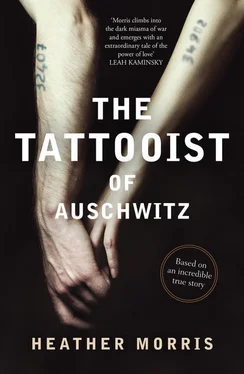
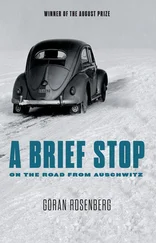

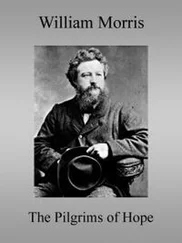


![Хезер Моррис - Дорога из Освенцима [litres]](/books/397846/hezer-morris-doroga-iz-osvencima-litres-thumb.webp)
![Хезер Димитриос - Токсичный роман [litres]](/books/408645/hezer-dimitrios-toksichnyj-roman-litres-thumb.webp)
